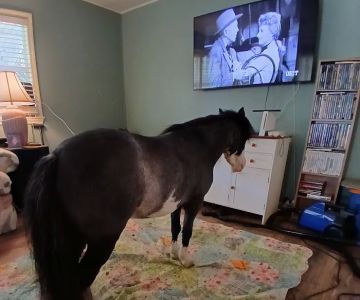Can a Veterinary Technician Work at a Zoo? Exploring Career Opportunities
- 1. Role of Veterinary Technicians in Zoos
- 2. Skills Needed to Work as a Veterinary Technician in a Zoo
- 3. Education and Training for Zoo Veterinary Technicians
- 4. Real-World Examples of Veterinary Technicians at Zoos
- 5. Career Outlook and Growth for Veterinary Technicians in Zoos
1. Role of Veterinary Technicians in Zoos
As a veterinary technician, you’re probably familiar with the medical care and treatment of animals in private practices or animal hospitals. But can a veterinary technician work at a zoo? Absolutely! Zoos are home to a wide variety of animals, from exotic species to endangered creatures, and they require specialized medical care. Veterinary technicians at zoos are key members of the animal care team, assisting veterinarians in providing health care, performing medical procedures, and maintaining the well-being of the animals.
In a zoo setting, veterinary technicians help with everything from administering vaccines to assisting in surgeries and performing diagnostic tests. They work alongside veterinarians to monitor the health of animals and are trained to use medical equipment, take blood samples, and even provide emergency care when necessary. Additionally, they help maintain medical records and assist in the rehabilitation of injured or sick animals.
2. Skills Needed to Work as a Veterinary Technician in a Zoo
To thrive as a veterinary technician in a zoo, there are certain skills and qualities that are crucial. First, a strong foundation in animal care is essential, as you’ll be working with a wide range of species that require different types of attention. You’ll also need excellent communication skills to interact with the veterinary team and zoo staff.
Another important skill for zoo veterinary technicians is adaptability. Working with exotic animals means no two days are ever the same. Whether you’re assisting with a routine check-up or handling a more urgent medical situation, your ability to think on your feet and react quickly will be essential. Additionally, having a keen understanding of animal behavior is important, as some animals may become agitated or stressed in medical settings.
3. Education and Training for Zoo Veterinary Technicians
To become a veterinary technician at a zoo, you must first complete the necessary education and training. Most veterinary technicians complete a two-year associate’s degree program in veterinary technology, which includes both classroom learning and hands-on clinical experience. Many programs also provide specialized training in exotic animal care, which is particularly beneficial for those interested in working at a zoo.
After completing your degree, certification is usually required. In the United States, the American Association of Veterinary State Boards (AAVSB) provides the Veterinary Technician National Examination (VTNE), which is necessary to practice as a licensed veterinary technician. Some zoos may also prefer or require additional training in exotic animal care or even have specific certification programs for zoo veterinary technicians.
4. Real-World Examples of Veterinary Technicians at Zoos
Many zoos around the world employ veterinary technicians to help care for their animals. One notable example is the San Diego Zoo, which has a large team of veterinary technicians working with veterinarians to care for animals like pandas, elephants, and big cats. In this role, technicians may assist with routine health assessments, manage animal care programs, and help in the zoo’s conservation efforts.
Similarly, the Bronx Zoo in New York has a dedicated veterinary team, including technicians who provide medical care to a wide variety of species. The work is incredibly rewarding, as technicians can be involved in cutting-edge research on endangered species and assist with the rehabilitation of animals that have been rescued from illegal wildlife trade or habitat destruction.
5. Career Outlook and Growth for Veterinary Technicians in Zoos
The demand for veterinary technicians in zoos and wildlife sanctuaries is expected to grow as zoos continue to play an important role in animal conservation and education. Veterinary technicians who are interested in working with exotic animals are in high demand, and many zoos are looking for professionals with specialized training in wildlife medicine.
While the competition can be stiff, gaining experience in a general veterinary practice or through internships with zoos or wildlife rescue organizations can be a great way to build the skills necessary to land a zoo veterinary technician position. The opportunity to work in such a unique and impactful setting is one of the main draws for those pursuing this career path, and the job satisfaction that comes with working in the field of animal conservation is unparalleled.
If you’re considering pursuing a career as a veterinary technician at a zoo, now is the perfect time to start building your education and experience. With the right training and skills, you can become a vital part of the team that helps animals in need and contributes to global conservation efforts.











